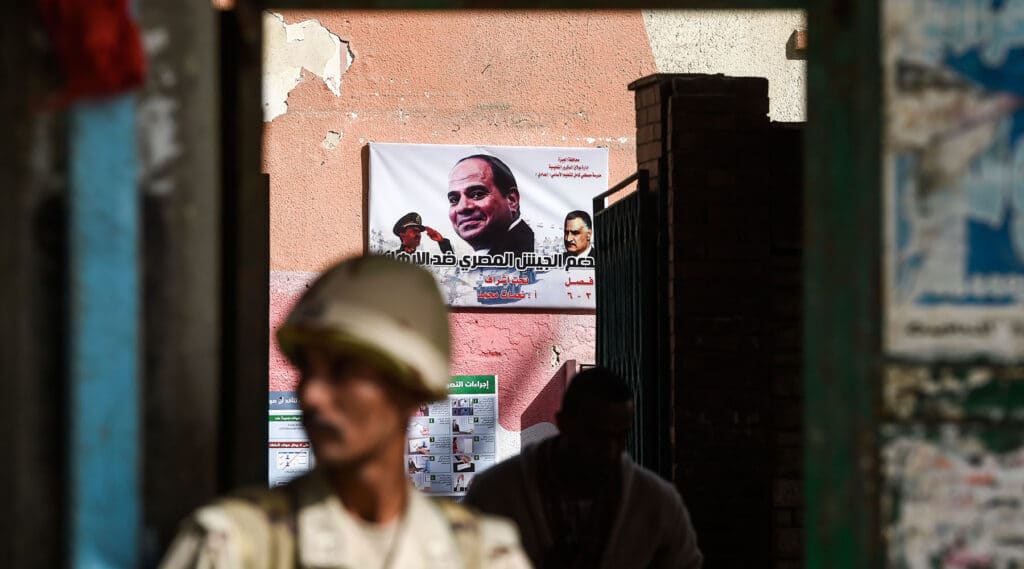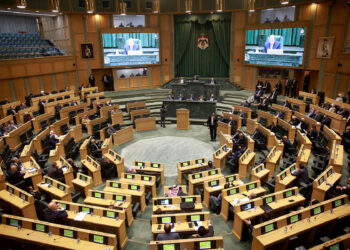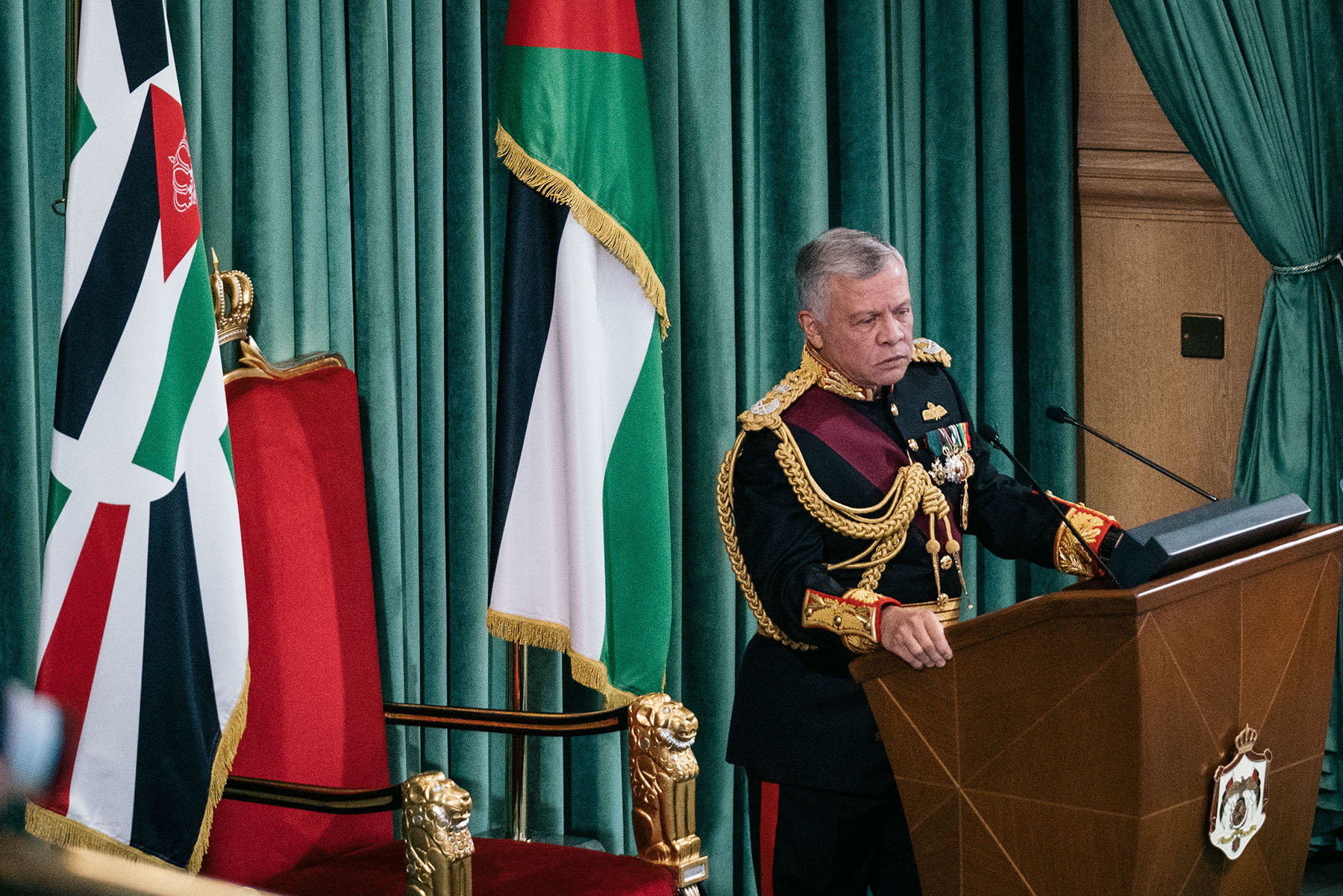Aslı Bâli is a Professor of Law at Yale Law School.
Editor's note: This article is adapted from a paper presented at a workshop on aid conditionality that DAWN cohosted with the MIT Center for International Studies.
The United States has sold $200 billion worth of major conventional weapons and related forms of technical support to nearly 170 countries since 2002. Just last year, the U.S. approved more than $175 billion in weapons sales. Former President Donald Trump made signing arms deals a signature foreign policy goal of his administration, touting the billions of dollars in sales he personally claimed to have secured. President Joe Biden is proceeding with most of these arms sales, including $23 billion in F-35s, drones and other advanced weapons to the United Arab Emirates, despite having expressed concerns about the UAE's use of such weaponry in the targeting of civilians in Yemen. In a familiar pattern, the Biden administration had announced a review of the sales, suggesting a suspension of the transfers as part of a bid to de-escalate tensions in the Middle East—only to back track. In the end, the difference between the Trump and Biden administrations on this front is more about form than substance. Biden may be more eager to signal America's good intentions, but in the end, military transfers to human rights abusers remain a bipartisan business.
In this context, any conditionality attached to this military aid serves as a kind of smoke and mirrors strategy to obscure the degree of American complicity in facilitating human rights violations worldwide. U.S. arms go to countries that are engaged in deadly civil conflicts and military interventions, and regimes that are guilty of atrocities and systemic human rights abuses. None of the supposed de jure conditions imposed on those sales can be shown to have served any purpose in determining where these weapons end up or how they are used.
Nor is the measure of the harm done by these sales limited to the efficacy of the weapons sold. Beyond their literal military impact and dollar value, military aid and arms transfers embed the United States in relationships with client states that offer autocrats diplomatic cover for their abuses. U.S. claims of imposing conditions on weapons sales suggest that regimes receiving American military aid must have human rights records that meet the bar. In this way, arms transfers serve a reputation-laundering function: Abusive client states purchase not only weapons but also the leverage of American support, effectively buying impunity for further abuses.
Egypt is a stark example of how such relationships operate in the Middle East and North Africa. This August marks the eighth anniversary of the massacres at Rabaa al-Adawiya Square and al-Nahda Square in Cairo, when Egyptian security forces killed at least 800 supporters of Egypt's first democratically elected president, Mohamed Morsi—himself deposed by a military coup weeks earlier. Initially in response to those mass killings, President Barack Obama's administration reviewed America's military assistance to Egypt and temporarily suspended the delivery of fighter jets, attack helicopters, tanks and missiles.
But just over a year later, Obama lifted the hold on these military transfers, despite a record of increasing repression at the hands of the leader selected by Egypt's military junta, Abdel Fattah al-Sisi, who had presided over the massacres as minister of defense. The reason asserted by the Obama administration for transferring weapons after the review was that it was important to U.S. national security interests to assist Egypt. To quote the then-National Security Council spokesperson, Bernadette Meehan, U.S. military aid would be "used to promote shared objectives in the region, including a secure and stable Egypt."
That statement pointed to the forms of soft capital that the U.S. transfers, together with weapons, to regimes like the one in Egypt. Without calling Egypt a democracy or endorsing the military takeover of power, the Obama administration signaled, by lifting the suspension, that Egypt's interests were aligned with America's. The U.S. framed Egypt as being on the side of the interests that Washington purports to advocate in the region—at a minimum, stability, order and prosperity. The message was that whatever abuses or repression may be committed by a regime like Sisi's, the cost-benefit analysis still places Egypt on the side of those to be treated as legitimate allies who have a shared stake in the U.S. conception of regional order in the Middle East and North Africa. Egypt has been adept at amplifying this message.
The same pattern occurred under the Trump administration. Then-Secretary of State Rex Tillerson briefly froze $195 million in military aid to Cairo and, in August 2017, imposed conditions for releasing it. Egypt would have to end its military and diplomatic cooperation with North Korea; resolve the cases of American and European citizens convicted under Egypt's draconian anti-terrorism laws for their work with a pro-democracy NGO in Cairo; and amend the repressive new regulatory regime for NGOs imposed by Sisi's regime. Yet during a visit to Cairo a few months later, Tillerson made no mention of the wave of repression in Egypt. None of the conditions established by the U.S. were fully met by the Egyptian government when, in September 2018, the State Department, then under Mike Pompeo, announced that the suspended aid would be released on the grounds that "strengthened security cooperation is important to U.S. national security."

What unites the Obama and Trump administrations in these examples is an unwillingness to impose meaningful conditions on U.S. military and diplomatic support for an authoritarian regime. What explains this pattern? First, there is a bipartisan view that the U.S. cannot successfully induce a change of behavior in Egypt. Second, there is a widely shared belief in Washington that repression may even be necessary to "stabilize the country," keeping the current authoritarian regime in place for fear that a successor may be worse. Sisi, according to this view, is a "moderate" with whom the U.S. and its allies in the region can do business. Third, Egypt continues to be treated as an important partner for counterterrorism efforts.
All three of these premises underpinning America's partnership with Egypt can and should be rebutted. U.S. pressure on Egypt has, in fact, secured changes large and small when that pressure has been consistent, its goals clearly defined, and the means well-tailored to achieve the ends sought. That includes both demands for significant policy shifts, such as allowing meaningful political participation for opposition groups, as Hosni Mubarak did in 2005, and narrower objectives like releasing imprisoned activists, as with the case of Mohamed Soltan.
Sisi, of course, is no moderate. It is ongoing American support for his regime that allows him to frame himself in these terms and manage his reputation despite the ever-worsening human rights situation under his watch. Sisi is presiding over an unprecedented and fundamentally unsustainable level of repression in Egypt that is radicalizing the population and running the risk of a true implosion in the country. Far from a moderating force, his rule has exacerbated all of the underlying crises that resulted in Egypt's popular uprising a decade ago. By every relevant metric—from police abuses to corruption, and from mass detentions to extreme poverty—Egypt under Sisi is less stable, less prosperous and more violent than at any time in the country's modern history.
Nor has Sisi proven to be an effective counterterrorism partner. Egypt's military cannot defeat a small insurgency in the Sinai, especially not by using U.S. military aid and weapons transfers. The Egyptian Armed Forces have waged a near decade-long campaign of attrition in the Sinai, with no end in sight and no achievements to speak of. A successful counterinsurgency campaign demands more than a U.S. military partnership can deliver; it would require a willingness to examine and address the roots of communal grievances that fuel the fighting. But Sisi's government brooks no dissent and criminalizes criticisms of its policies, and the Sinai is no exception. Its counterterrorism strategy—checkpoints, curfews, large-scale forced displacement, home demolitions, and scorched-earth tactics that have killed and wounded thousands—reproduces insecurity in the Sinai, multiplying grievances and, with them, new recruits.
Egypt is a microcosm of a much broader problem: the futility of so-called U.S. conditions on weapons transfers to the region, nominally on human rights grounds. What is needed ultimately is an end to these arms sales, not the fig leaf of conditions that are easily discarded. The injection of U.S. military aid stokes conflict, undergirds destabilizing patterns of repression and violence, and legitimates regimes like Sisi's in ways that align the U.S. with autocracy, fueling radicalization.
Nor is the only corrosive effect of conditionality its legitimizing function for autocrats. Human rights commitments and multilateral demands for compliance are themselves also fundamentally depreciated—indeed delegitimized—because of their selective enforcement by global powers that vaunt their own rights-promoting credentials. When the U.S. purports to uphold human rights and to condition military aid on compliance, only to provide arms to regimes like those in Egypt, Saudi Arabia and the United Arab Emirates, it tarnishes its own reputation and confirms, once again, that double standards are at play whenever human rights are invoked by Western powers in the region.
In the end, military aid to America's authoritarian client states in the Middle East and North Africa can never meaningfully be "conditioned" on reforms for human rights or changes in behavior. Such assistance is, by design, intended to prop up autocrats whose stability depends on violating the rights of their own people. Promoting human rights in American foreign policy requires ending, not conditioning, weapons sales to the abusive regimes whose continued reign depends on repression. Anything less suggests that it is the United States' commitment to human rights that remains fundamentally conditional.
![]()































![Security forces loyal to the interim Syrian government stand guard at a checkpoint previously held by supporters of deposed president Bashar al-Assad, in the town of Hmeimim, in the coastal province of Latakia, on March 11, 2025. Syria's new authorities announced on March 10, the end of an operation against loyalists of deposed president Bashar al-Assad, after a war monitor reported more than 1,000 civilians killed in the worst violence since his overthrow. The Syrian Observatory for Human Rights said the overwhelming majority of the 1,068 civilians killed since March 6, were members of the Alawite minority who were executed by the security forces or allied groups. (Photo by OMAR HAJ KADOUR / AFP) / “The erroneous mention[s] appearing in the metadata of this photo by OMAR HAJ KADOUR has been modified in AFP systems in the following manner: [Hmeimim] instead of [Ayn Shiqaq]. Please immediately remove the erroneous mention[s] from all your online services and delete it (them) from your servers. If you have been authorized by AFP to distribute it (them) to third parties, please ensure that the same actions are carried out by them. Failure to promptly comply with these instructions will entail liability on your part for any continued or post notification usage. Therefore we thank you very much for all your attention and prompt action. We are sorry for the inconvenience this notification may cause and remain at your disposal for any further information you may require.”](https://dawnmena.org/wp-content/uploads/2025/04/syria-22039885951-360x180.jpg)






